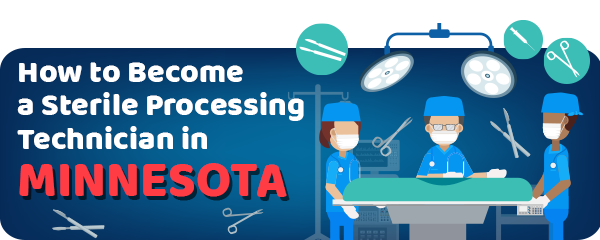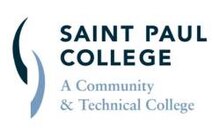Working in the healthcare industry offers an excellent professional environment with stable job prospects compared to other sectors.
One promising career path to consider is becoming a sterile processing technician.
If you’re interested in this profession, it’s essential to understand the requirements, particularly for those aspiring to work in Minnesota.
Below, we will outline the steps to becoming a sterile processing technician in Minnesota.
Article Table of Contents
Job Responsibilities and Skills for Sterile Processing Technicians in Minnesota
In Minnesota, obtaining a license is not mandatory for securing your first job as a sterile processing technician.
This holds true for most states across the United States, with a few exceptions.
However, it is highly recommended to pursue certification.
Many medical facilities hiring sterile processing technicians typically require candidates to possess relevant experience and certification to demonstrate their skills and knowledge for the job.
The daily responsibilities of a sterile processing technician in Minnesota include:
- Conducting inventory checks
- Managing and preventing the spread of illnesses and infections
- Cleaning, sterilizing, packaging, and storing medical instruments
- Maintaining and repairing medical equipment
- Adhering to protocols and specific methods for proper disinfection and sterilization of medical tools and equipment
To enhance your qualifications, it would be beneficial to acquire additional skills such as:
- Strong organizational skills
- Problem-solving abilities related to the role
- Knowledge of medical terminology
- Proficiency in aseptic techniques
It’s important to note that the specific job tasks and required skills may vary depending on the employer.
How to Become a Sterile Processing Technician in Minnesota
To become a certified sterile processing technician in Minnesota, there are several paths you can take to achieve your goal.
The simplest option is to take and pass the national certification exam, which typically lasts for three hours.
In Minnesota, there are organizations like the Healthcare Sterile Processing Association (HSPA) that offer certification exams.
For entry-level positions, you will need to take the Certified Registered Central Service Technician (CRCST) certification exam.
Another route is obtaining certification through the Certification Board for Sterile Processing and Distribution (CBSPD).
To acquire this certification, you must pass the exam and have 12 months of relevant experience.
Additional requirements include:
- Completing approximately 400 hours of lab experience
- Submitting a fee
- Possessing a high school diploma or GED
- Passing a background check
- Passing drug tests, and passing the licensing exam.
It’s important to remember that your sterile processing technician certification requires annual renewal, and attending extra classes and workshops can help you stay updated with industry changes.
Training Programs for Sterile Processing Technicians in Minnesota
Enrolling in a school that offers a sterile processing technician program is highly recommended to gain the necessary knowledge and experience for certification.
In Minnesota, there are several schools that provide sterile processing technician programs, including:
Minneapolis Community & Technical College 
This college offers a central services technician program that mixes theory and practice.
You will take lab hours and also practice in a hospital setting, which will give you the required experience.
At the end of the course, you will be completely prepared for the Certification Board for Sterile Processing and Distribution national certification test.
The topics covered in the theory class include:
- Overview of surgical instruments.
- Anatomy and physiology
- Assembly and packaging of equipment.
- Decontamination, sterilization, cleaning, and disinfection.
- Distribution and storage of medical and surgical supplies.
- The role of a medical equipment preparer.
- Medical terminology.
- Professionalism and communication skills.
- Safety and risk management.
- Microbiology
Anoka Technical College 
This technical college provides a course that you can take before getting a Surgical Technology degree.
It is helpful if you are looking for an entry-level job.
It will also benefit those who are already certified but need to renew their license.
Saint Paul College 
This program provides you with 30 credits.
It combines theory with lab hours and hands-on practice.
The course also offers a combination of physical lessons and online classes.
Just like the previous program, this one will also get you ready for an associate’s degree in surgical technology.
All the schools have flexible hours, so you can choose to work while studying.
| School Name | Address |
|---|---|
| Anoka Technical College | 1355 US-10, Anoka, MN 55303 |
| Minneapolis Community & Technical College | 1501 Hennepin Ave, Minneapolis, MN 55403 |
| Saint Paul College | 235 Marshall Ave, St Paul, MN 55102 |
Sterile Processing Technician Salaries in Minnesota
Once you obtain your license, it’s natural to aspire to secure a job quickly.
Fortunately, this shouldn’t be challenging, considering your certification and ample experience.
Various facilities hire sterile processing technicians.
Some of these are hospitals, laboratories, doctor’s offices, clinics, and dentist practices.
Furthermore, it is expected that sterile processing technician jobs to grow by 6 percent over the next decade.
If you’re curious about the potential earnings as a sterile processing technician, it’s worth noting that salaries in Minnesota average around $46,000 per year and $23 per hour.
However, several factors influence the actual salary, such as your level of experience in the field.
The more experience you accumulate, the higher your earning potential.
Moreover, the medical field offers excellent opportunities for career advancement.
Annual Salary Range:| Location | Avg. Annual Salary |
|---|---|
| Minneapolis | $48,893 |
| Saint Paul | $48,893 |
| Minnetonka | $48,893 |
| Eden Prairie | $48,810 |
| Burnsville | $48,755 |
| Lakeville | $48,590 |
| Rochester | $46,006 |
| Saint Cloud | $44,014 |
| Duluth | $43,941 |
| Albany | $43,794 |
Regional Salary in Minnesota
| Region | Employed | Avg. Annual Salary | Avg. Hourly Pay | Top 10% Annual Salary | Bottom 10% Annual Salary |
|---|---|---|---|---|---|
| Duluth, MN-WI | 70 | $45,900 | $22.07 | $56,050 | $37,200 |
| Minneapolis-St. Paul-Bloomington, MN-WI | 830 | $48,630 | $23.38 | $56,920 | $38,320 |
| Rochester, MN | 270 | $50,510 | $24.28 | $58,610 | $40,110 |
* Employment conditions in your area may vary.
Frequently Asked Questions
Must I have a license to become a sterile processing technician in Minnesota?
No, you don’t need either a license or a certification to become a sterile processing tech in this state.
Having one will increase your chances of getting hired as the competition can be quite high.
Can I train as a sterile processing technician in-person, in a different state?
Since this state has no laws governing sterile processing technicians, you can attend in-person training courses in a different state.
Be aware that you might have a higher tuition to pay compared to in-state students.
Can I Attend Online Training Courses For Sterile Processing Techs In Minnesota?
The short answer is “yes” but you’ll need to find a medical center on your own for the mandatory practice hours that usually are part of a sterile processing technician training program.
Read the full guide: How to Become a Sterile Processing Technician



